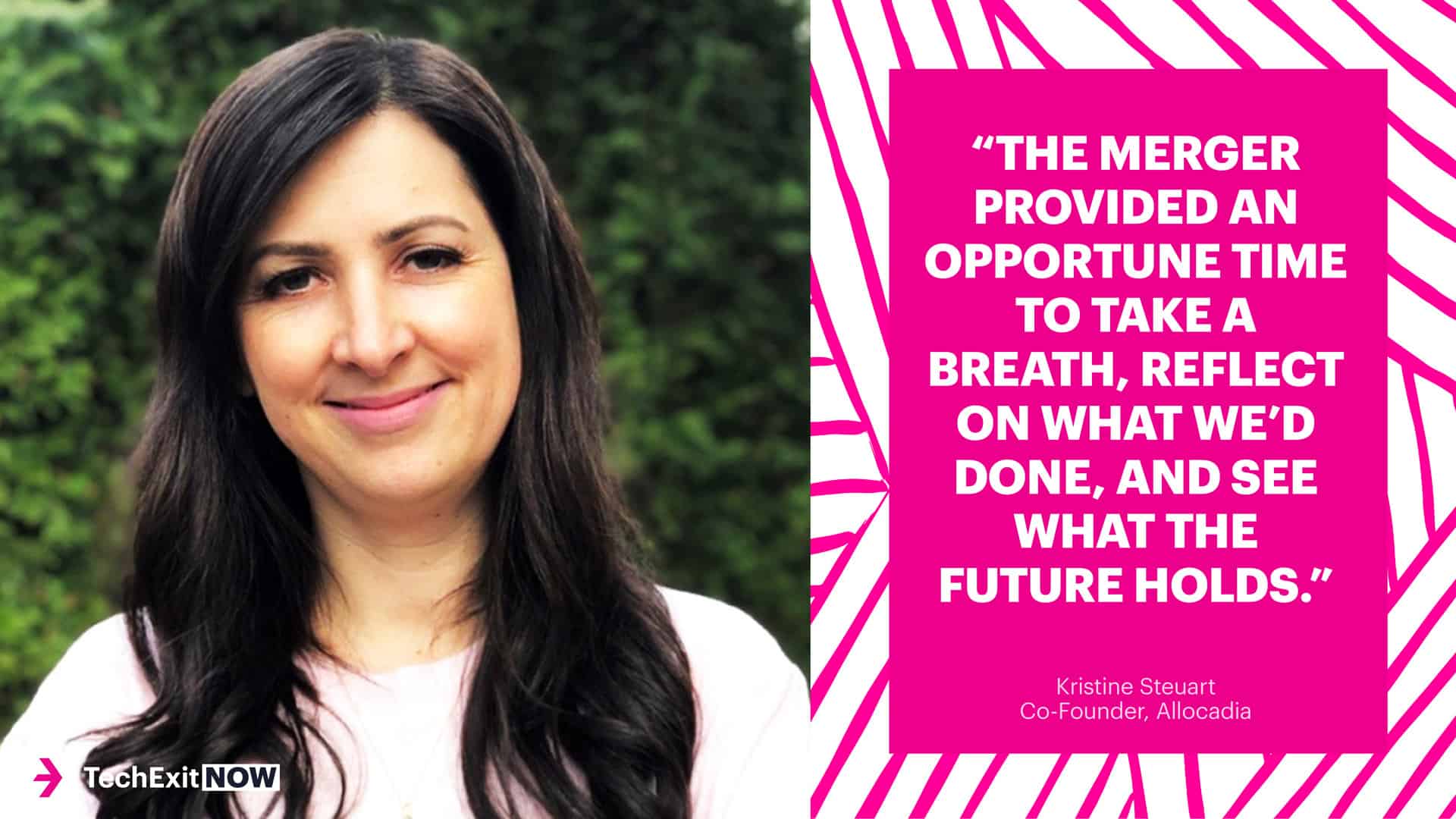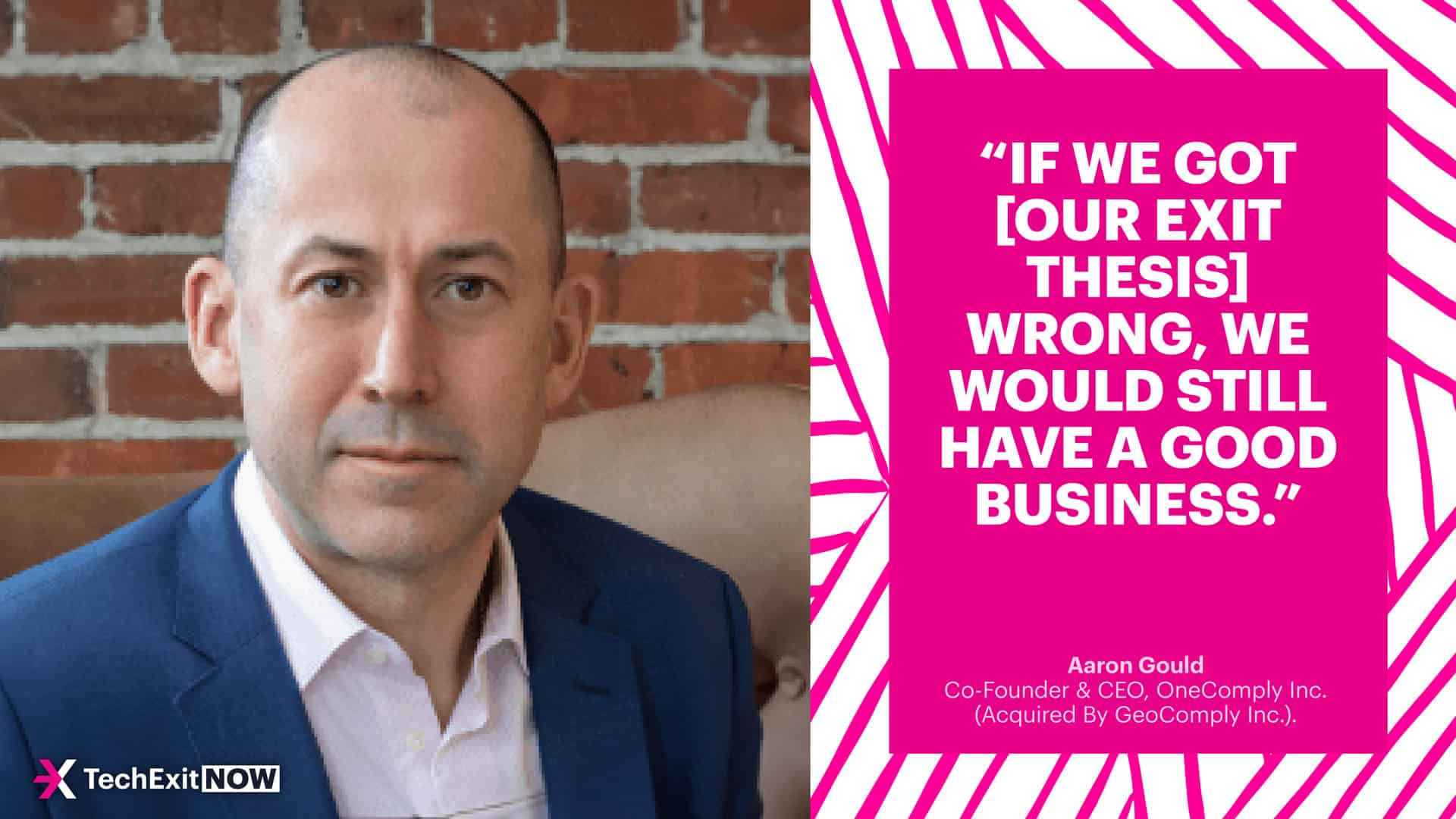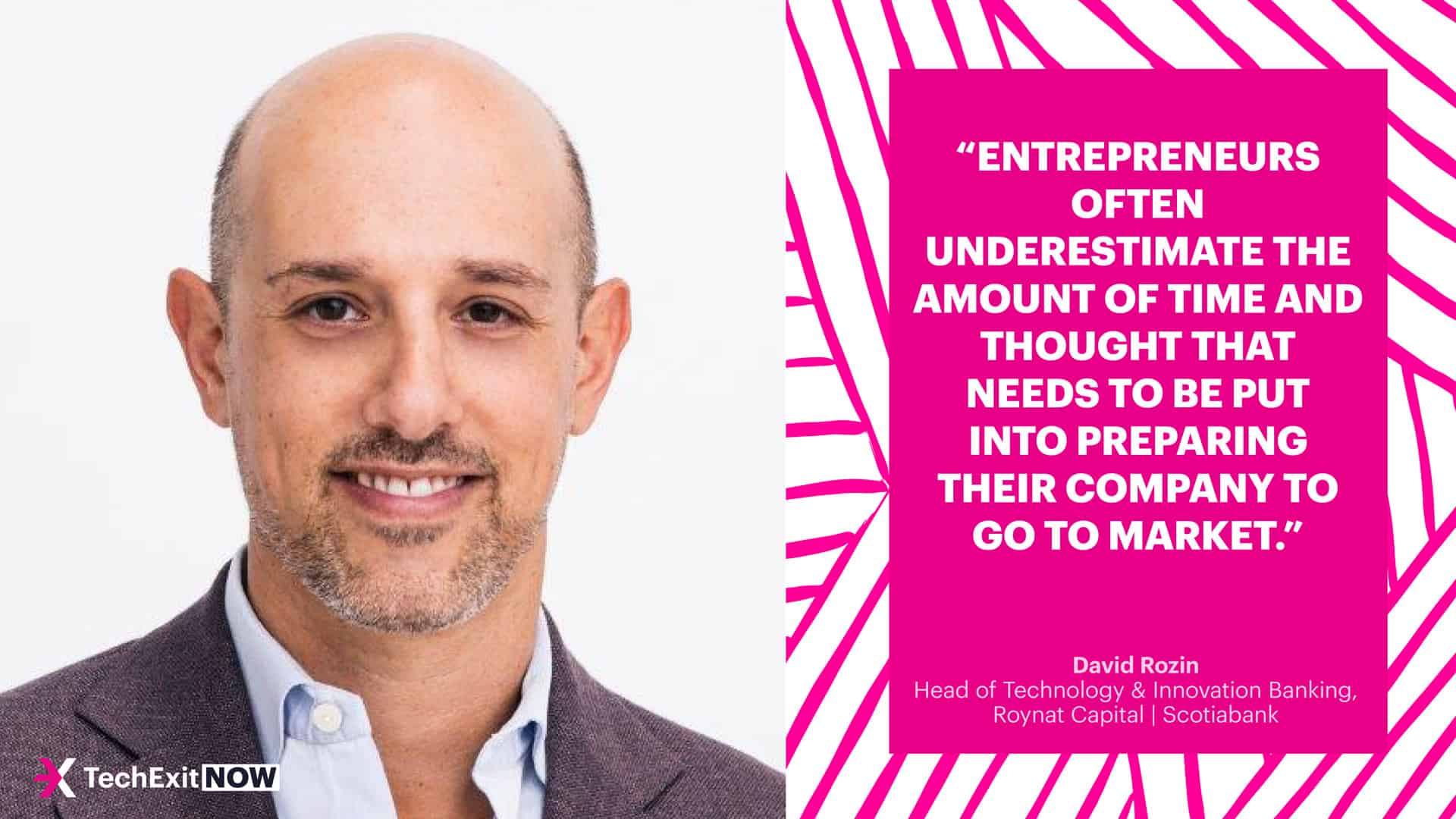Why a Merger Made More Sense for Allocadia Than Growing Independently
Stefan Palios

Kristine Steuart had specific growth goals in mind for her company Allocadia and determined the way to reach them was to bring on an investment partner with expertise and investment to continue to scale the business as a stand-alone company. Yet the process to bring on a growth partner resulted in the unexpected outcome of selling the company to a private equity firm and merging with German SaaS company BrandMaker. Speaking with TechExit.io, Kristine shared why a merger made sense and the lessons she learned about successfully exiting the company you founded.
Key takeaways:
- Set a proactive, diligent process to meet the strategic goals you want for the business.
- Founders need to remain open to different ways of achieving the growth (or other) strategies they set for their businesses, including raising money, selling or merging.
- Focus on the outcome you want and the desired customer, employee, or market goals you set, not the specific mechanics or outcomes such as a sale or fundraise.
After building Allocadia from the ground-up with her sister, Kristine Steuart was looking for the company’s next big growth move. The platform already counted major companies among its customer base and had secured a spot as one of the top-rated marketing operations platforms in the world. It seemed like the next step would be to bring on an investment partner for the future to continue to scale growth as an independent company. Instead, the company sold to a private equity buyer and merged with BrandMaker, a German marketing operations SaaS company.
Speaking with TechExit.io, Kristine shared why a merger ultimately made sense - and some big lessons learned along the way.
Setting growth goals and seeking an growth investor
Over the lifetime of Allocadia, Kristine raised $30 million in capital between Angel, Seed, Series A, and Series B rounds. This may not seem like a lot compared to news of mega-raises, but Kristine said the company had growth metrics more similar to companies that had raised significantly more.
“We’d been cash-positive for most of the lifetime of the company, which is highly unusual in tech,” said Kristine. “In today’s environment, you might see companies raise $100 million or more to get to where we were in terms of [annual recurring revenue].”
By late 2020, buoyed by rising tides pre COVID-19 pandemic and the pandemic push to buy more software that helped internal teams within organizations work smarter, Kristine and her executive team strategized on how to propel the company forward. Excited about the company’s position in the market and proven value being delivered to customers, they made the decision that it was the right time to look for an investment partner to help scale future growth. Kristine informed the board, who agreed, and she began implementing the process to make this a reality.
“We had high net retention, high new customer growth, and our customers were happy,” said Kristine. “That gave us the confidence to say it was the right time to scale further and faster.”
Kristine laid out specific investment and growth opportunities for Allocadia as it sought a partner to scale:
- Go-to market expansion: With proven sales and marketing metrics in place, Allocadia had an opportunity to scale its sales and marketing investments to acquire more customers.
- Product expansion: Allocadia was a leader in its niche and the next step meant moving into adjacent areas, furthering existing customer expansion.
- Geographic expansion: Allocadia had a strong foothold in North America and Kristine wanted to see the company expand globally.
Looking for a partner and finding a buyer
Kristine officially commenced the investment partner process in January 2021, courting potential partners and sharing the Allocadia story. After a few months, she connected with Rubicon Technology Partners, a private equity firm that was interested in acquiring Allocadia and bringing them together with a similar-sized company in their portfolio, BrandMaker, a strong European player in an adjacent space to Allocadia.
Initially hesitant, a merger ended up making perfect sense because it allowed Kristine to hit what she calls “the next inflection point of growth and investment” for Allocadia.
The process started to come together for Kristine as it quickly became apparent that working with Rubicon and merging with BrandMaker would be the path to meet the objectives laid out in the process, and then some:
GTM expansion: They had the capital and expertise to help scale sales and marketing in the merged businesses, delivering insta-growth through the merger, and enabling the combined business to sign more new customers.
Product expansion: The two platforms were complementary to one another, with both being highlighted as leaders in their respective focus areas in a Forrester Wave category; The combination meant more related capabilities delivered to customers and customer expansion opportunities.
Geography: The arrangement would instantly give the combined business global reach – with Allocadia’s strong North American presence, and BrandMaker’s strong European presence.
Further, a merger meant employees would have deepened opportunities in a bigger organization, and be a part of a global team of more than 350 people around the world.
“The merger was a great outcome for all stakeholders, including employees,” said Kristine. “Everyone benefited from the transaction.”
The post-merger zone
Kristine expected to stay for a year or two post-merger, but ultimately transitioned after three months following the integration process. However, she said this was another situation where it made perfect sense to not follow the expected path.
Similar to searching for a growth partner and realizing a sale and merger made more sense, Kristine focused on the goals she had for herself and the business. In the end, it was a logical time and path for her to transition from the business: her co-founder is still in the company, a newly formed executive team was in place to grow the business, and it gave Kristine time to spend with her family, something she’d not been able to do as much as she wanted to while building Allocadia.
Now she spends her time on the board of BC Tech, an organization dedicated to helping BC tech companies scale up. Kristine shared that a small minority - around 2% - of BC tech companies grow to over 100 employees. In her own words, she wants to give back to new companies the same support and resources that were given to her as a young founder.
She’s not sure what’s next quite yet, but in the meantime she’s excited for the future.
“The merger provided an opportune time to take a breath, reflect on what we’d done, and see what the future holds,” said Kristine.
BACK









